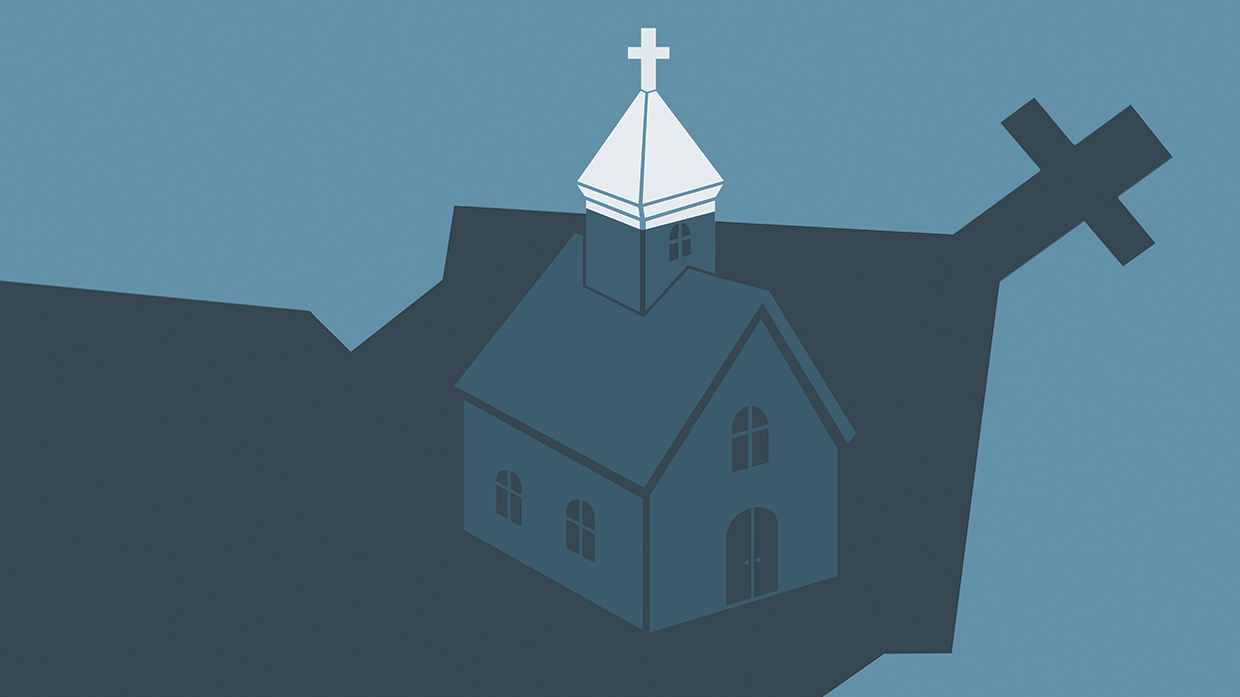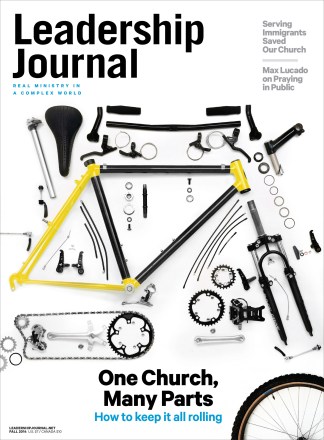Not all small churches are created equal. Sure, some are small because the leadership doesn't have enough vision or skill to reach their community. But Karl Vaters believes that the pressure to raise numbers has kept many small churches from capitalizing on their inherent strengths. For 21 years, Karl has served as pastor of Cornerstone Christian Fellowship in Fountain Valley, California. In that time his church has grown—and shrunk—and finally settled into its mission to be the best small church it can be. He wrote a book, The Grasshopper Myth, to challenge small church leaders to think bigger by thinking smaller. Vaters spoke with BuildingChurchLeaders.com managing editor Laura Leonard about how small churches can find their niche and become the small church God has called them to be.
How did you come to see yourself as a "small church pastor"?
For the last 21 years, I have been at Cornerstone Christian Fellowship. When The Purpose Driven Church came out in the mid-90s, I had all of our leadership couples read it. It changed the way we did everything, and we grew from 75 to 200 or so. I realized we were at the 200 barrier, so I started reading, studying, and going to conferences to figure out how to break through it.
We made it to about 400 people, but after a year at that level, things really started going south, really quickly. We shrank so much it wasn't fun anymore, and I stopped counting—we were probably in the low 100s. I was in a bad place spiritually and emotionally. I followed all the rules, and they didn't work.
A former pastor who is now a counselor walked with me through that long season. He said, "Karl, you've got to figure out how to redefine success." When he said that, I wanted to punch him in the nose. I thought what he meant was, "You've been trying to jump a 10-foot bar but you're only jumping 9 feet, so lower the bar to 9 feet and call it a success." I couldn't do that. But he said, "Forget about jumping a bar. If the bar is to your left, success is to your right."
"What do you mean by that?" I asked. And he said, "You have to redefine success. It's not about jumping the bar anymore. Success for you is going to look different than butts in the seats. You've got to figure out what it is."
It took me awhile to take that in. But once I did, I realized he was right. God had given us a small church, and the amount of work that it was going to take to become a big church was going to be (1) outside my gifting, and (2) maybe not where God was taking us. If we were going to be a small church, we should be the best small church we possibly could. That's what success looks like for us.
Should numbers ever be a goal for a church?
I don't think numbers are a good goal. If you look around, 80 percent of the churches in the world are under 100 people, and 90 percent are under 200 people. What if that's part of a strategy God wants to use, rather than a problem God wants to fix?
I'm very slow to say that God calls some churches to be small, because this ministry of mine celebrating small churches can still sound like settling: This is all we're meant to be. But there is a different set of skills that are needed over the 200 barrier than under it. It's not that I don't think that ministry needs to be done at those levels—it does. But I'm not called or gifted to do that. And I think the vast majority of pastors aren't. Most of us are shepherds at heart and we're being told we must become ranchers—but if we're not a good rancher, what do we do?
What do you think it will take to change the connotation of the term "small church"?
Those leading small churches have to recognize that as a valid ministry all its own. I got to the point of despising my church and myself, and being angry at God, because the church stayed small. Then, when I started redefining success, I wondered, Why am I mad at God for giving me a wonderful, healthy, vibrant small church? That's a valid thing to be.
There are certain things that small churches can do that bigger churches can't. Some people are blessed and encouraged by going to a big church because it reminds them that their faith is a part of something big, but there are a whole lot of people for whom a big church is just intimidating. It pushes them away. If we only push for churches to get bigger, we will lose the people whose worship heart is drawn to more intimate settings.
What would you like to say to small church pastors?
You don't need one more dollar, you don't need one more person, you don't need one more square foot in your building—you don't even need a building—in order to be right now what God is calling your church to be. Don't wait until some future time when you have more people to pull the trigger on being innovative and outreaching. Do it now. It may look different than you thought it was going to look, but God put you where he did, he gave you these people, and he gave you everything you need right now to do what he wants you to do right now.
Copyright © 2014 by the author or Christianity Today/Leadership Journal. Click here for reprint information on Leadership Journal.










